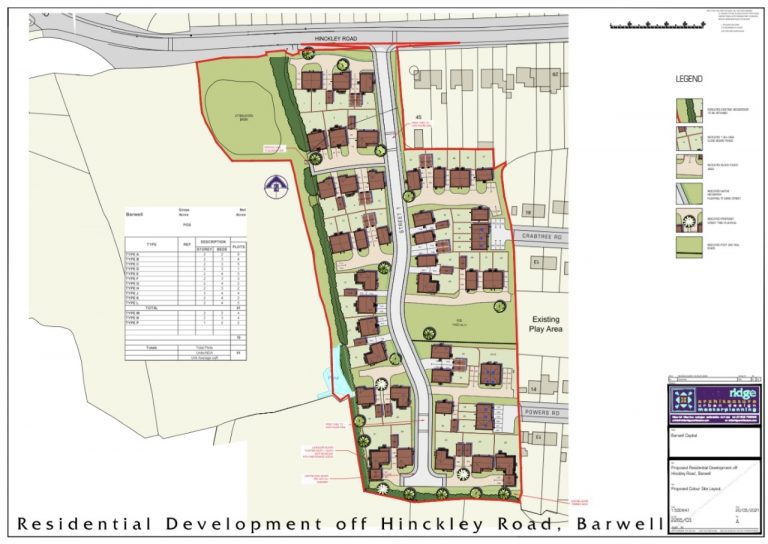Business confidence in the future grows in the East Midlands
Northamptonshire charities to benefit from £10,000 Community Fund
Plans for future of Chatsworth Estate move into next phase
Two new brands sign up to £100,000 golf challenge
Plumbers warned of asbestos danger lurking in Britain’s buildings
Streets Chartered Accountants covers energy bills, capital allowances, National Insurance, changes in VAT penalties, interest rates increases, and more in new news roundup
Connect with hundreds of industry professionals at the Property & Business Investment Lincolnshire Expo
Barwell residential scheme to go ahead following planning appeal
Planners at Harris Lamb have successfully appealed against attempts to block 51 new homes being built near Hinckley.
The development, earmarked for a greenfield site located on Hinckley Road in Barwell, will now go ahead after being given the green light by a Planning Inspector.
Harris Lamb were instructed by Barwell Capitol to mount an appeal against Hinckley and Bosworth Borough Council after the authority failed to determine a planning application proposing the construction of 51 properties, ranging from two- to five-bedrooms, on the site.
The application was submitted in July 2021. It remained undetermined at October 3rd last year and a non determination appeal was made. The hearing and site visit were held earlier this year.
Although an official decision was not provided, the Council sought to resist the development on a number of grounds, suggesting the development would not provide satisfactory living conditions for the residents, and concerns over the safeguarding of protected species and the provision of a net biodiversity gain.
In responding to the issues, the inspector appointed by the Secretary of State, M Aqbal, said: “I have considered these arrangements and found that they would not result in any unacceptable impacts on living conditions. I, therefore, do not share the Council’s conclusion that these arrangements are indicative of a poor and cramped layout.”
The Inspector went on to say that an Ecological Impact Assessment had been submitted at the time of the application providing the results of relevant ecological and protected species surveys, confirming that the presence of protected species was not a statutory ecological constraint to the development, subject to recommendations for precautionary measures, adding: “As such, and based on the discussions at the Hearing, the reference to protected species in the Council’s reason for refusal was an oversight.”
In approving the plans, the inspector added that in the interests of safeguarding protected species and to enhance biodiversity, a condition had been imposed requiring that the development be carried out in accordance with recommended mitigation measures contained in the ecological survey submitted alongside the application.
Simon Hawley, of Harris Lamb’s Planning Consultancy team, said: “We are, once again, that our appeal has been successful and that this development can proceed, bringing much-needed, quality homes to the area.
“We take great care in working with our clients in preparing these plans to ensure that all proposals are submitted with ecological impact assessments and that we include comprehensive measures to ensure the buildings are sympathetic with the local surroundings and include contributions to enhance and improve the infrastructure and facilities to benefit all residents.
“We are pleased that the inspector took the time to thoroughly understand the full extent of these plans and the beneficial impact they will have on the community in making this ruling.”












